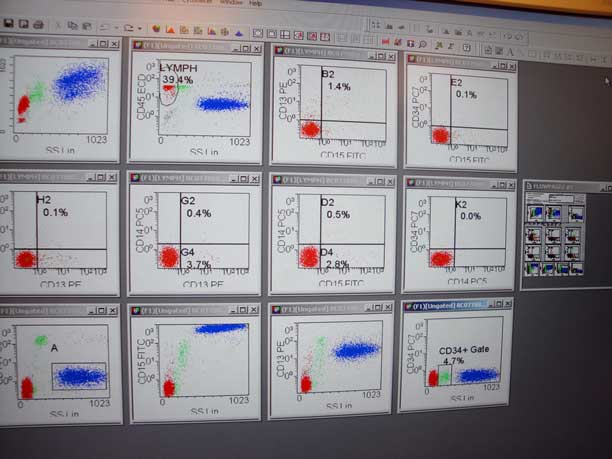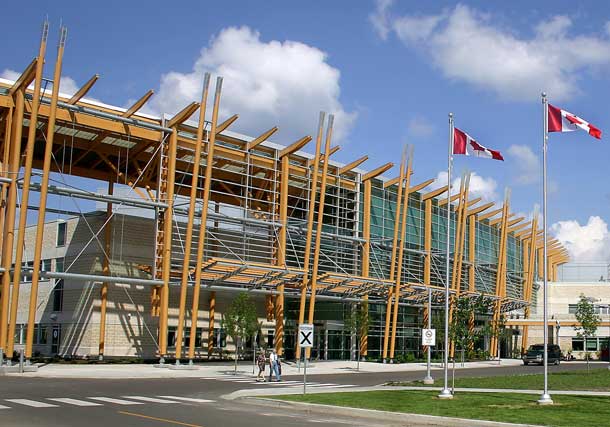

THUNDER BAY – Health – What is flow cytometry? Imagine you are a rancher needing to assess exactly how healthy your herd is. Now imagine a new device that could tell if a cow was sick by simply painting it with a special substance and shining a light on it. If the cow remains the same colour, it is healthy. If the cow shines yellow, it has a cold; if the cow shines black, it has hoof-and-mouth disease; and so on.
Flow Cytometry – New Technology
This is kind of how flow cytometry works. White blood cells are chemically “highlighted” with the marker, and a special machine lines up the cells so that they pass through one by one, much like cows being transferred from one area to another through a transfer chute. A laser hits each cell to light it up, and records what “colour” it reflects as well as its size.
Now imagine that you have many, many different kinds of cows, all of which light up differently. The only way to get a true health check of the entire herd is to measure the readings from each cow, and compare what colour healthy cows should be to what colour they actually are. These are then mapped on a graph. One or two sick cows – or in other words one or two sick/abnormal cells – is to be expected, and isn’t likely a problem. The body usually takes care of these diseased cells through its own natural defences.
However if there are many abnormal, potentially cancerous cells, the test usually confirms the disease and type, and therefore how to treat it.
That requires looking at 10,000 or more cells and almost 40 different possible cell marker tests all working in combination. To make things more complicated, sometimes cells can be sick in unexpected ways, making diagnosis difficult. But with the help of powerful computer software to graph the results of every single cell and the trained eye of the Flow Cytometry Technologist – as well as genetic testing in some cases – pathologists and oncologists can usually pinpoint the correct mutation and treat the disease accordingly.








